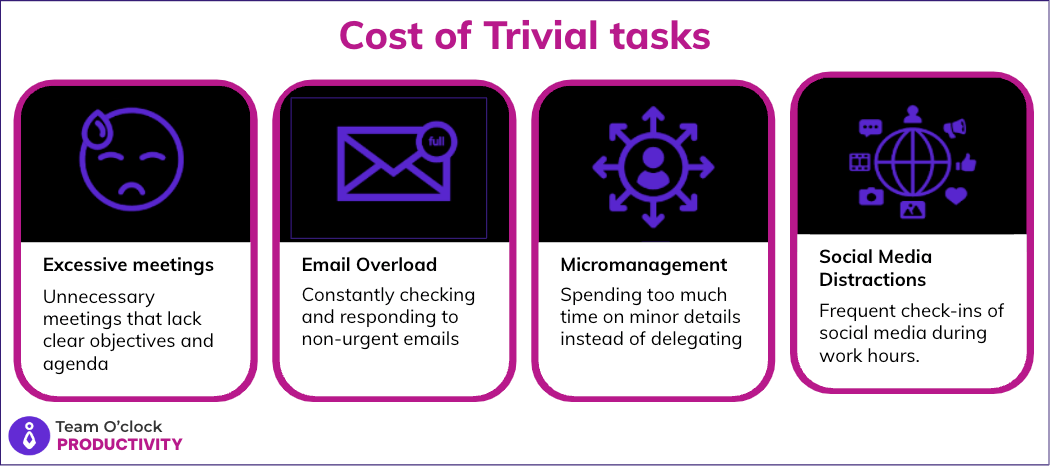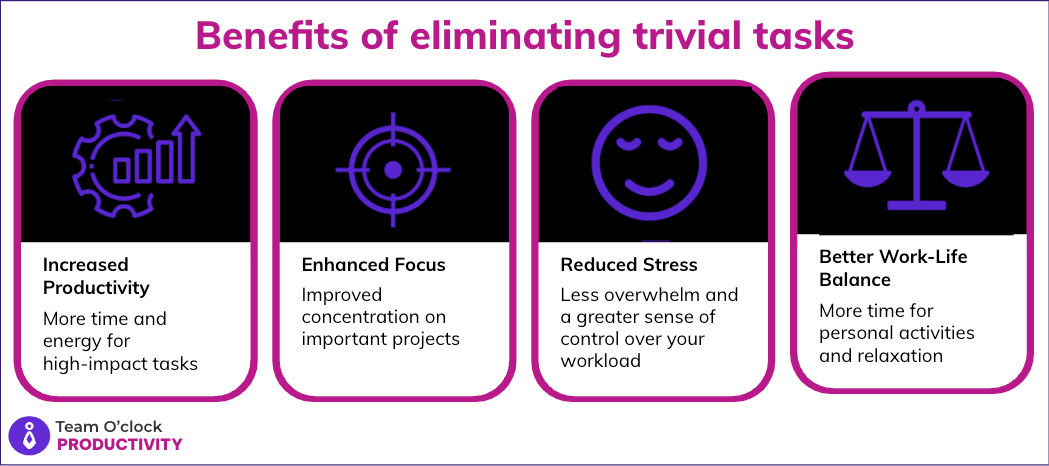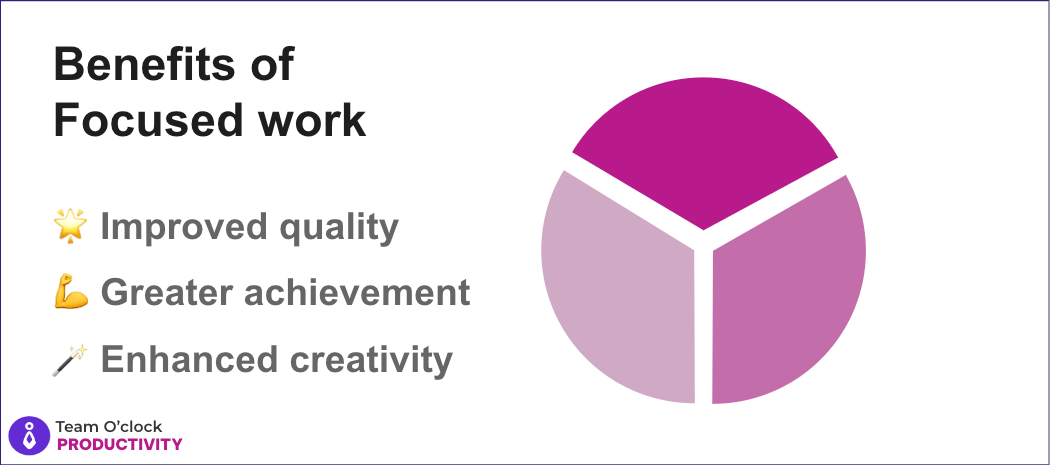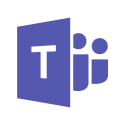
How to Eliminate Unproductive Activities and Focus on What Matters

Who doesn't get swamped by their never-ending to-do list nowadays? It's so easy to get bogged down by trivial tasks that sap our time and energy. Plenty of unproductive activities can prevent us from focusing on the work that truly matters.
Identifying and eliminating these distractions can enhance our productivity, reduce stress, and achieve better results. In this blog, you will discover strategies to eliminate trivialities from your daily routine and emphasize the importance of focusing on meaningful work.
Understanding the Impact of Unproductive Activities
What Is the Cost of Trivial Tasks?
While seemingly harmless, trivial tasks can accumulate and take a significant toll on our productivity. Here are some common examples:
Excessive Meetings: Unneccesary meetings that lack clear objectives and agendas
Email Overload: Constantly checking and responding to non-urgent emails
Micromanagement: Spending too much time on minor details instead of delegating the work
Social Media Distractions: Frequent checks of social media platforms during work hours

The Benefits of Eliminating Trivial Tasks
Eliminating trivial tasks from your daily routine can lead to several benefits:
Increased productivity: More time and energy for high-impact tasks
Enhanced focus: Improved concentration on important projects
Reduced stress: Less overwhelm and a greater sense of control over your workload
Better work-life balance: More time for personal activities and relaxation

6 Strategies to Eliminate Unproductive Activities
1. Conduct a Time Audit
A time audit is the first step in identifying unproductive activities you need to eliminate from your routine.
Track your time: Use tools like Toggl or RescueTime to monitor how you spend your work hours.
Analyze patterns: Identify patterns and pinpoint activities that consume a lot of time without adding value.
Prioritize tasks: Categorize tasks based on their importance and urgency.
2. Set Clear Goals and Priorities
Setting clear goals and priorities helps you stay focused on what matters.
SMART goals: Set Specific, Measurable, Achievable, Relevant, and Time-bound (SMART) goals.
Daily prioritization: At the beginning of each day, list your top priorities and focus on completing them first.
Use the Eisenhower Matrix: Categorize tasks into four quadrants based on urgency and importance to determine what to focus on and what to delegate or eliminate.
3. Limit Meetings and Streamline Communication
Meetings and communication can be significant time-wasters if not appropriately managed.
Set meeting agendas: Ensure every meeting has a clear agenda and objectives.
Limit meeting time: Keep meetings short and to the point.
Use asynchronous communication: Use tools like Slack or Microsoft Teams for non-urgent communication to reduce interruptions.
4. Delegate and Automate Tasks
Delegating and automating tasks can free up time for more pressing activities.
Delegate wisely: Assign tasks to team members who are best suited for them.
Automate repetitive tasks: Use automation tools like Zapier to handle routine tasks such as email sorting or data entry.
5. Minimize Distractions
Minimizing distractions is crucial for maintaining focus on high-impact work.
Create a distraction-free workspace: Designate a workspace free from distractions and set boundaries with colleagues and family members.
Use focus tools: Tools like timers and time management methods like the Pomodoro technique can help you stay focused and productive.
Turn off notifications: Disable non-essential notifications on your devices during work hours by using notification blocker apps or turning on airplane mode for a completely distraction-free environment.
6. Practice Mindful Work Habits
Mindful work habits can help you stay present and focused on the task at hand.
Single-tasking: Focus on one task at a time instead of multitasking, which can reduce efficiency.
Take regular breaks: Schedule regular breaks to rest and recharge, which can improve overall productivity.
Reflect and adjust: Regularly reflect on your work habits and make adjustments as needed to stay on track.
Focus on Work That Matters: What Is It Important?
Focusing on high-impact work involves dedicating your time and energy to tasks that drive significant results:
Identify high-impact tasks: Determine and prioritize which tasks have the most significant impact on your goals.
Allocate time blocks: Set aside dedicated time blocks for high-impact tasks to ensure they receive your full attention.

Conclusion
Eliminating unproductive activities and focusing on meaningful work is essential for success in today's demanding work environment. You can significantly enhance your productivity and well-being by conducting a time audit, setting clear goals, limiting meetings, delegating tasks, minimizing distractions, and practicing mindful work habits.
Prioritizing high-impact work leads to better results and fosters a greater sense of accomplishment and satisfaction. Start using agile tools today to reclaim your time and focus on what truly matters.








